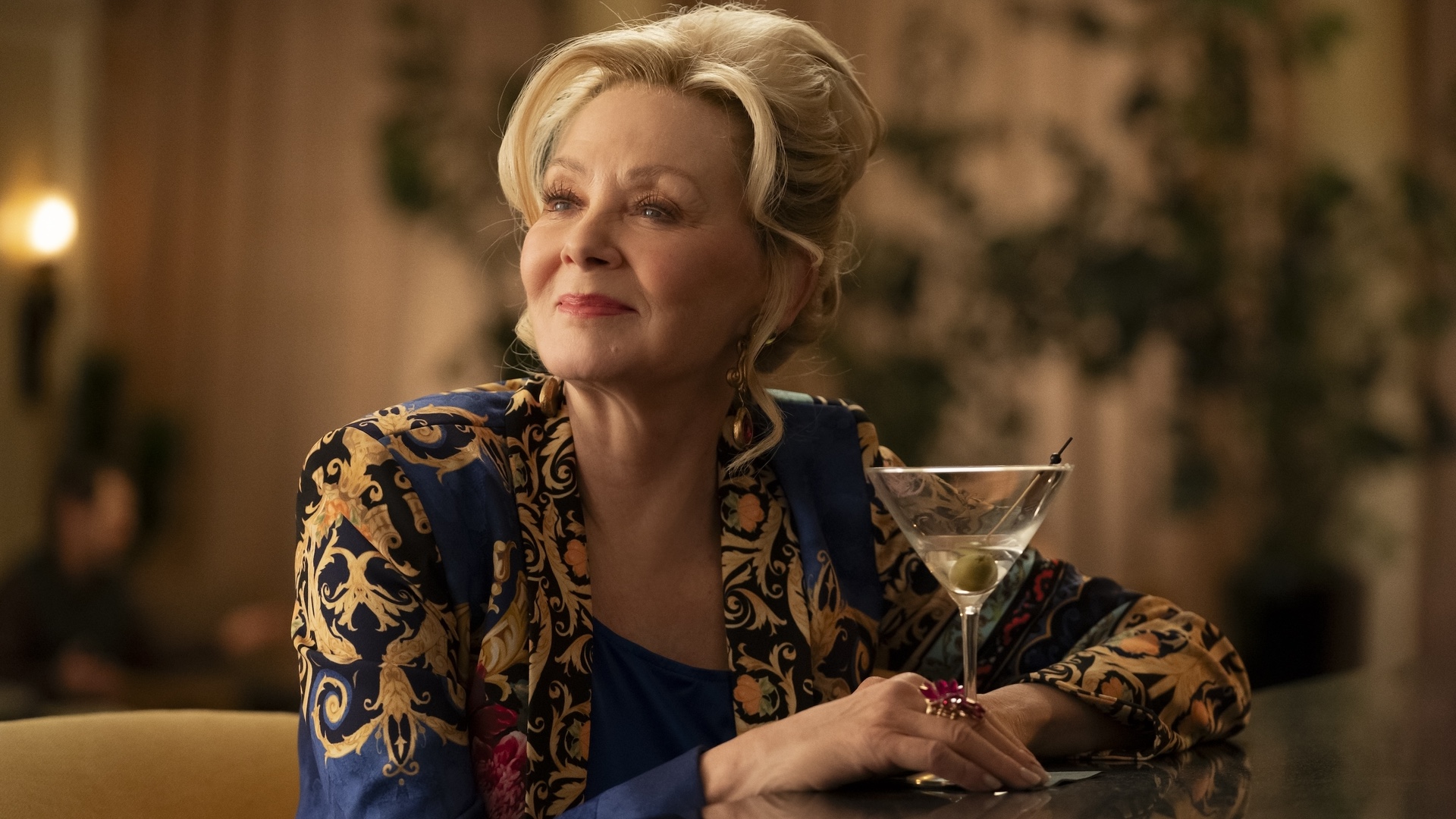
This article contains spoilers for Hacks season 3 episode 8.
As we near the finish line of Hacks’ incredible third season, the Max original comedy series continues to set a high bar in the industry for chaotic energy, lightning-quick wit, and organically grown relationships between characters. Jean Smart’s performance as Deborah Vance always stands above and beyond. Deborah’s hardened, crude exterior belies a soft, thoughtful woman underneath the surface, fighting for love and affection.
The comedian’s personality and arc have hugged the LGBTQ+ community within the story and in real life. Almost all of Deborah’s business associates are queer (Ava, Marcus, and Damien), and each season has been littered with plotlines connected to Deborah’s massive gay fanbase. Vance seamlessly fits into the legacy of female entertainers who capture the adoration of the gays, from pop singers like Lady Gaga to TV staples like the seniors from The Golden Girls.
The penultimate episode of season 3 “Yes, And” finds novel ways to dissect why powerful, flamboyant women become the subject of obsessive worship throughout LGBTQ+ circles. Without demeaning the audience or feeling preachy, the show speaks through a random extra to make a compelling, memorable argument for the vitality of celebrity inspiration and gay heroes.
Deborah originally tells her CEO, Marcus (Carl Clemons-Hopkins), that she will cut off her visit to UC Berkeley to get back to an annual Pride event in time to satisfy the throng of dedicated fans who always patiently anticipate her appearance. When a collection of old clips starts circulating online that paint Deborah in a poor light and lead to her worrying that she’ll be “canceled,” she tells a distraught and disrespected Marcus that she won’t be able to make it to Pride.
Marcus takes offense to Deborah’s decision and complains that she is betraying her longtime gay fans who have supported her during the darkest times in her career. It’s only when he sits down next to a fellow gay patron at the bar that he realizes Deborah’s representation goes so much further than a tangible presence at an event. The fan asks Marcus to think about the deeper meaning of Deborah’s queer fandom and the similarities between her life and those who feel rejected by society.
“You can’t stop being a fan just because she has more of them. We loved her before anyone else did and she loved us before anyone else did. That’s not nothing. We just have to share her now.”
With Pride marketing growing in stature and visibility each year, gay consumers often have to shovel through a facade of BS to find which businesses and celebrities authentically care about the community rather than just exploiting it for dollars. The bar patron digs to the core of Deborah’s and so many other gay icons’ original intentions by recognizing that she broke free from society’s restrictions in the way so many discriminated groups want to.
Every single person on the planet aspires to grow their creative interests and succeed on a large scale. Staying confined to the comforts of one group of fans would be like an NFL Draft prospect never wanting to leave his hometown. To grow is to be uncomfortable. It’s to step out of the mundane and become atypical. That’s what makes a queer icon a beloved figure in the community. The fan wants Marcus and the audience to know that both Deborah and the people at Pride can support each other in spirit, that the love shared between the two parties is an unbreakable bond.
“It (Deborah’s newfound accomplishments) just means we were right all along. Nobody’s ever going to know Deborah like we do. She’s a survivor like us.”
Marcus seems to eventually accept the patron’s eloquent, poignant reminder of the true meaning of allyship and how it’s a two way street. Deborah feels comfortable prioritizing a different section of her fanbase because she knows she doesn’t have to convince the gays of her worth. It’s like an unspoken language. Being a gay icon isn’t really something you can explain in words, but rather something felt by the participating members of the partnership.
Deborah attracts so many queer people in her life without even trying because of her purity. The show brilliantly shows her trying to win over other “minority groups” (as Deborah innocently mislabels them according to Ava) instead of going to Pride, but she never had to do that with gay fans. Her fierce drive to fight above the noise of the haters encapsulates every part of the LGBTQ+ rainbow, and Hacks’ comprehension of this part of her character makes it a treasure just as iconic as its protagonist!
The Hacks season 3 finale premieres Thursday, May 30 on Max.
The post Hacks Season 3 Brilliantly Unpacks What It Means to Be a Gay Icon appeared first on Den of Geek.





